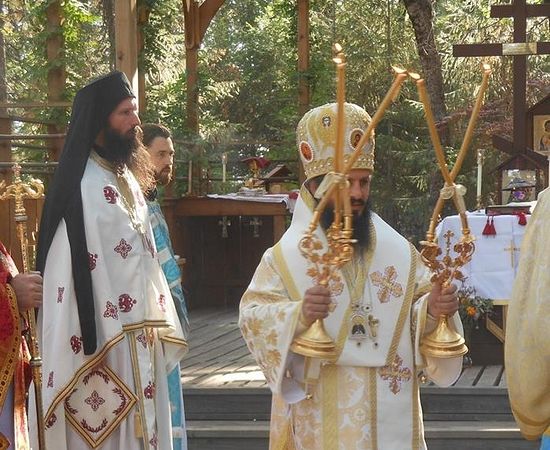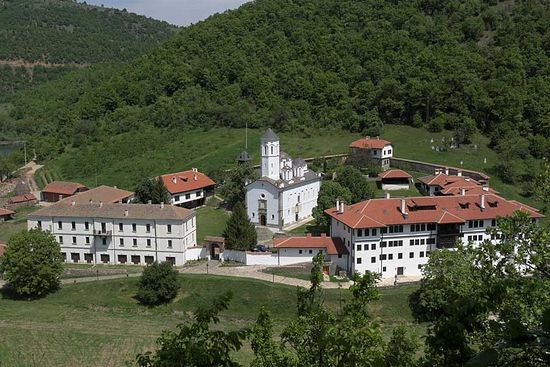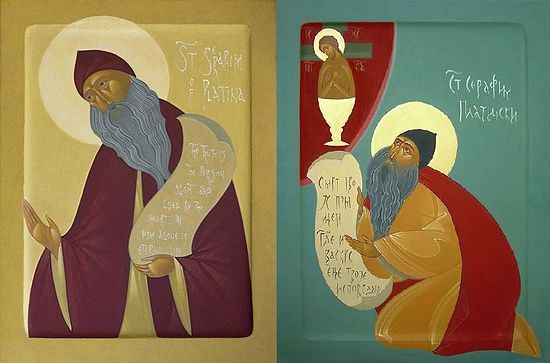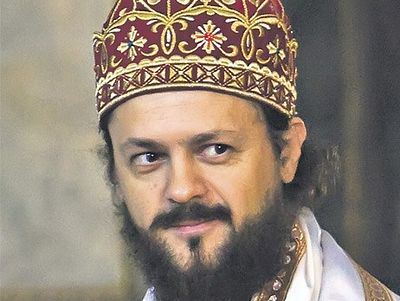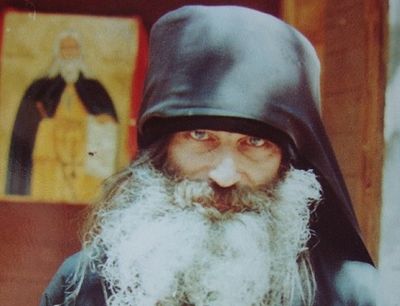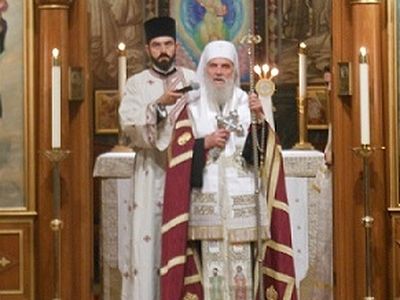The following informal talk was given at the meal following Divine Liturgy on the occasion of the thirty-third Anniversary of the Repose of Hieromonk Seraphim Rose, by Archimandrite Ilarion, abbot of the Monastery of the Holy Archangels Gabriel and Michael in Draganac, in Kosovo, Serbia.
* * *
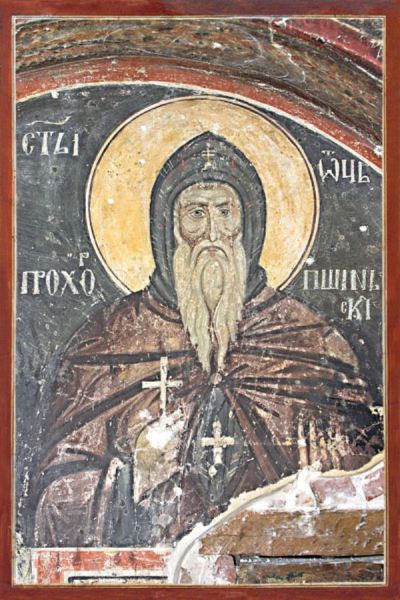 St. Prohor Pechinskii
St. Prohor Pechinskii
When we finished the liturgy Fr. Paisius asked me if we knew each other. He told me that I seemed familiar. Basically that is my impression regarding all of you and this monastery—I have the impression that I spent a lot of time here. So excuse me that I became a little too free. Most of you I’ve met for the first time, but this is the way I feel. When we are around the holy table, around our God, and we pray to our Heavenly Father we are supposed to feel like children and to leave all the worries of this world. Only those people who are in that sense child-like can sometimes, with the blessing of God, be called the fathers of the Church. Only the one who is a child can be called a father. And he is a father not because of himself but because he reflects the mystery of our Heavenly Father Who loves us through His Son and in His Son.
Sometimes when we serve the Liturgy I feel like I am in kindergarten, and it is interesting that I have the same feeling on both sides of the Atlantic. I had a similar impression when I read my first articles by Fr. Seraphim Rose because, paradoxically, although I am Serbian and I was baptized as a child, I consider myself a convert, because when I first came to Decani Monastery and I met new brethren and when I confessed for the first time and received Holy Communion, my whole life changed and I converted, and that’s how we Serbs talk to each other: “When did you convert to Christianity?” Really, I say that without irony. We feel as though we were converts.
So I feel no big difference between you and us [Serbs] although we are a traditionally Orthodox country. One of the first books I read when I was in Decani was the book by Fr. Seraphim, Orthodoxy and the Religion of the Future. It was published by the faculty of theology in Belgrade. I felt a new refreshing spirit from them, because most of us were raised on western music and American films, and so here was a good part of this culture that you can feel in Fr. Seraphim Rose—this freedom of spirit. Through Fr. Seraphim Rose and many other authors who lived in the U.S. we could hear the truths about Orthodoxy from outside, and it is a very interesting experience when somebody else from afar is telling you about your own tradition. It is interesting also to read the Gospel in another language—you always notice something else.
So thanks be to God and your sweet smelling rose, which you can smell on every continent now, we could feel our Tradition in a new way. So we could tell our friends, “You see—here is an American in San Francisco who passed through all these movements, to whom we like to refer, and you see—he inspires us to find freedom in Christ.”
Before coming here to the United States we had a visit from nuns from Prohor Pechinskii monastery. It is an ancient monastery with the myrrh-gushing relics of St. Prohor Pechinskii. The myrrh has been coming out of his grave for more than ten centuries. 150 years ago his relics were burned in a fire, so they enclosed them in the wall, and the myrrh is still gushing through a hole that appeared! And sometimes there is such a huge quantity that the sisters have to collect it with towels. And the whole monastery and the sisters in a certain sense smell like this tomb of the holy father who is known for his wonder-working and healing of many people, even of possessed people who come to him to be freed.
He used to live in the wilderness, and when he died his grave was shown by the deer that came there. I remembered that wilderness of Pechinia this morning when I went to the forest and I wanted to read my prayer rule. I had an opportunity to pray, so I went up the hill to the rock and I saw deer passing by, and I remembered the life of St. Prohor. I remembered that deer came to the grave of Fr. Seraphim Rose during his funeral.
I feel a certain similarity between this place and Pechinia monastery, and one reason why I’m telling you this is probably one of the recent miracles of Fr. Seraphim. Before coming here the mother abbess Stefanida asked me to pray for one of her novices because she saw him, not in a dream but awake, and they even talked to each other. In such cases we pray to be freed from any deception of our enemy so please pray for us and this novice. Her name is Zvezdana. She many times told the abbess, who is an experienced nun of almost twenty-five years, that she felt the presence of Fr. Seraphim Rose—she simply knew his presence—and on one occasion she saw him in a vision. She continued to pray, and she told Fr. Seraphim that she thinks it’s beautiful in his monastery. He answered, “It’s beautiful here also—beautified by the relics of Fr. Prohor.”
So we are connected in a mysterious way, in the mystery of the Church, in the mystery of the Body of Christ. I hope that we will preserve this impression and experience that we are in the house of our heavenly Father. I hope that I will keep these spiritual memories and prayer with you. I don’t know if you will agree with me, but all these countries where we are living are the footstool of our homeland which is in Heaven, the upper Jerusalem, and that’s why we feel we are so close—because we have the same homeland.
